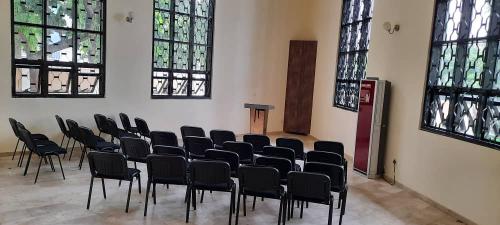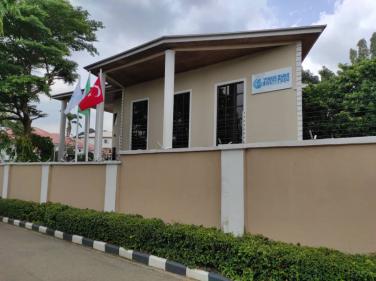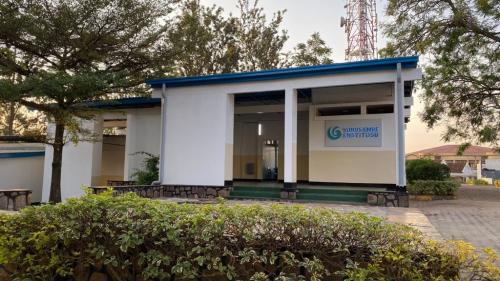Yunus Emre Institute Opens Two New Centers in Africa
Yunus Emre Institute (YEI), which acts with the mission of increasing Turkey's international recognition, reliability, and reputation, has opened two more new centers in Africa. The Institute has opened centers in Somalia, Senegal and Sudan and continues its Turkish teaching and culture and arts activities. The Institute, which operates in a wide range of fields from education to art, science to sports, has increased the number of centers worldwide to 64.
YEI, which has established ties with Turkey all over the world and aims to increase the number of people friendly to Turkey, is planning new activities in Africa with centers it has opened in Nigeria's capital Abuja and Rwanda's capital Kigali. YEI aims to promote Turkey in a realistic way by promoting the Turkish language and culture through these activities.
TURKISH COURSES HAVE STARTED IN ABUJA YEI
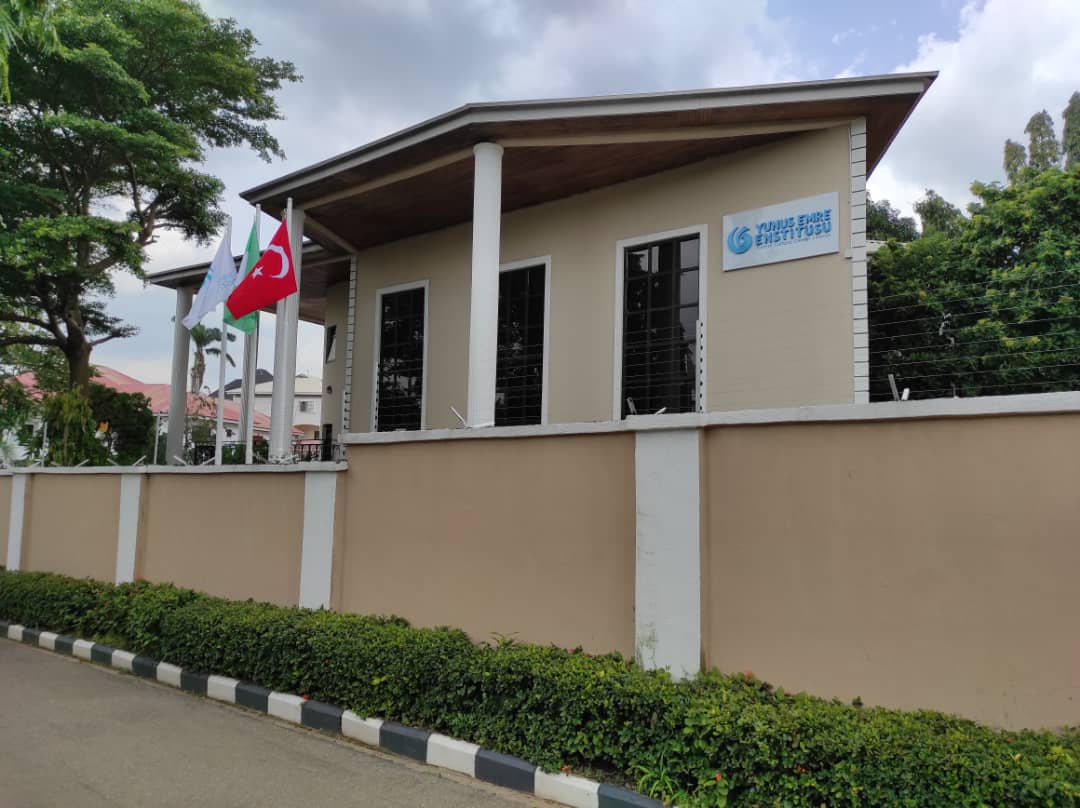
The center, which YEI opened in the capital Abuja after the work it started in Nigeria in 2018, also gives the Nigerian people the opportunity to learn Turkey and Turkish culture in addition to studying Turkish.
Macit Koç, Acting Director of Abuja YEI, stated that YEI has been in Africa for many years and wants to do permanent and productive work in Sub-Saharan Africa.
Stating that YEI has started operating in Gambia, Senegal, and Rwanda in recent years in Sub-Saharan Africa, Koç said, "We provide services by opening a center with a strategic decision or within a university according to the need in the country where we go." Koç added that due to the importance of Nigeria in the African continent, YEI decided to establish an independent center here.
Online Turkish courses at Abuja YEI started on September 27, 2021. Face-to-face Turkish language education programs will also start in the center very soon.
INTERCULTURAL DIALOGUE
Koç said that the purpose of YEI's arrival in Nigeria is to provide intercultural dialogue as well as Turkish education.
Stating that there are more than 500 languages and more than 80 ethnic groups in Nigeria, Koç said, "We want to be a part of the Nigerian culture. If we are going to make Turkish food or Turkish coffee day here, we will also make a Nigerian version of it in the same way."
Koç pointed out that one of the main tasks of YEI in Nigeria is language teaching, and added, "Many African young people have been studying in Turkey in the recent years. We are also considering contributing to their education and teaching Turkish to adults, children, housewives here, in short, to the whole audience."
WE AIM TO COMMUNICATE THROUGH CULTURE
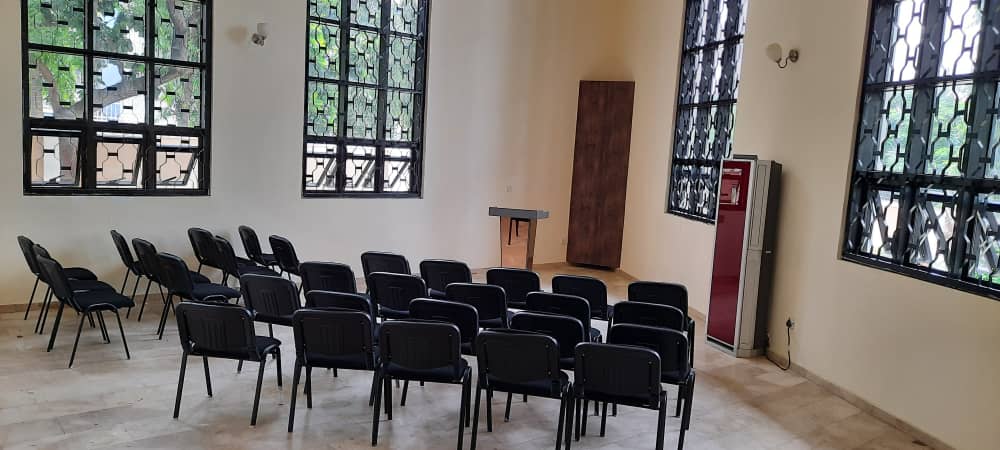
Koç expressed that due to the coronavirus pandemic, the Institute currently starting to teach Turkish online courses in Nigeria, but face-to-face classes will start soon.
Stating that Nigeria is a place open to face-to-face education, Koç said, "For this reason, we have opened 3 classrooms and a library here, including a children's classroom and an adult classroom."
Koç emphasized that the first of YEI's goals is to communicate through culture and its second goal is to introduce Turkish as a foreign language to people and to contribute to the socialization of people.
Highlighting that the entry of YEI into Nigeria will be very useful for the next generations, Koç said, "YEI is the first large government institution of Turkey, other than the embassy, to be opened here. We want Nigerians to think of this center as a Turkish house."
KIGALI YUNUS EMRE INSTITUTE STARTED ITS ACTIVITIES
After seven years of diplomatic relations with Rwanda, the Yunus Emre Institute has opened in the Rwandan capital, Kigali.
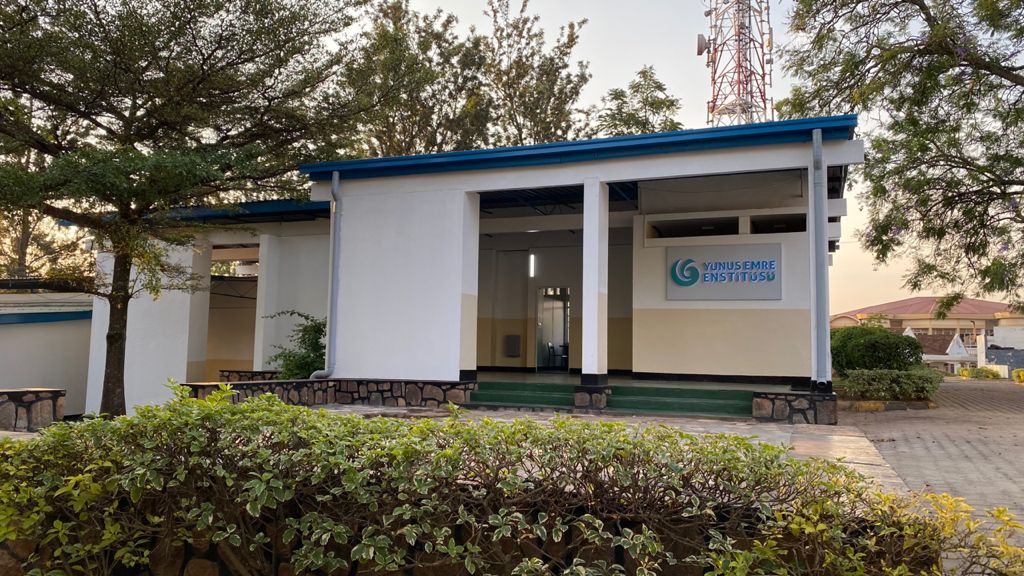
Enes Karaçoban, Acting Director of Kigali Yunus Emre Institute, where the people of Rwanda showed great interest in the Turkish education activities that started, stated that after the Turkish education, culture and arts activities will also begin. Karaçoban said that the Rwandan people, who know very little about Turkey, are starting to get closer to Turkish culture thanks to YEI. He noted that Rwandans have the opportunity to get to know Turkish culture directly through the Institute's activities, and a positive impression has already begun to emerge.
Karaçoban expressed "Rwanda is one of the countries with the highest potential for development among African countries. In addition to the fact that relations with Turkey are quite good, the recent increase of Turkish companies in the country has made it more attractive to learn Turkish."
Karaçoban said that the Institute was established on the University of Rwanda campus in as little as two months with the help of the Rwandan Consulate General of Turkey. The Institute noted that as soon as it announced the Turkish course, 200 students from the University of Rwanda applied for the YEI Turkish course from their online accounts at their universities.
YEI IN RWANDA WILL STRENGTHEN RELATIONS BETWEEN TWO COUNTRIES
The Turkish Academic and Scientific Cooperation Project (TABIP), implemented by Yunus Emre Institute under the auspices of the Turkish Presidency, signed a cooperation agreement with the University of Rwanda in December 2019.
A delegation headed by YEI Turkish Teaching and Turcology Director Prof. Yavuz Kartallıoğlu came to Kigali between 12 and 17 April 2021 to hold the preliminary discussions of the agreement and held a series of meetings with University of Rwanda officials.
Collaborating with the University of Rwanda, Yunus Emre Institute aims to establish various collaborations in many fields, primarily education, culture, and arts in order to promote the Turkish language and culture in the country.
Turkish Ambassador to Kigali Burcu Çevik stated that although Turkey opened its consulate in Kigali in 2014, relations between the two countries are quite good. Çevik added that he believes the Turkish courses opened in Rwanda will bring the people of the two countries together because 2021 is the Year of Yunus Emre and Turkish.
COOPERATION IN 20 FIELDS
Stating that the two countries signed cooperation agreements in 20 fields, including education, trade and investment, Çevik noted that Turkey supports Rwanda in order to strengthen the human resources in the country. "Turkey offers full scholarships to Rwandan students studying bachelor's and master's degrees in our country. Up until now, 200 Rwandan students have benefited from the scholarship opportunities.” Çevik also noted that the Turkish Ministry of Foreign Affairs organized an online diplomatic training program for 41 newly appointed Rwandan diplomats.


